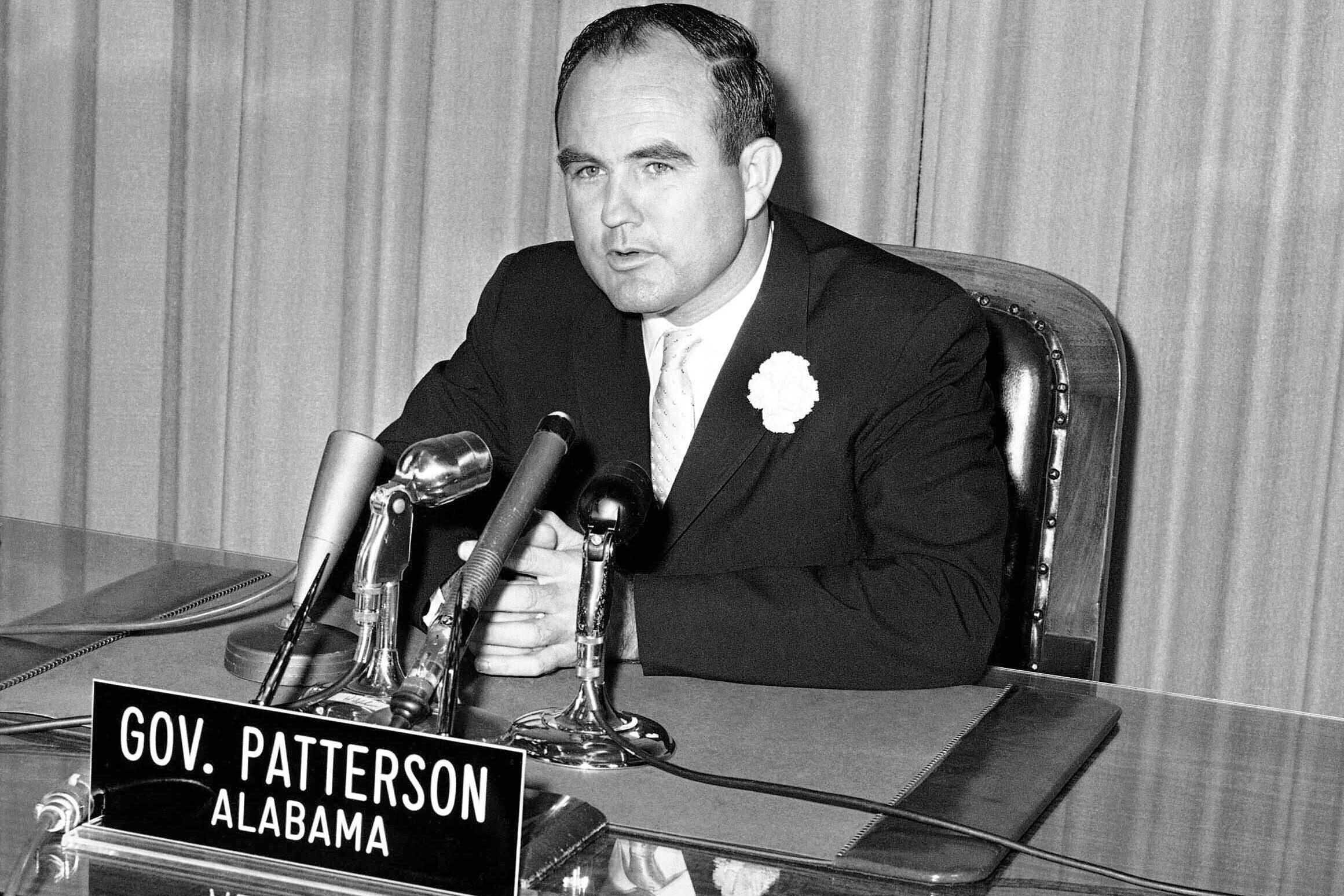What would you do if it was you?
His father was murdered. Not just his father, but his law partner, a candidate for that year's election. At 33 years old, he was thrust into the middle of an election and had to decide if he would run for his father's seat instead.
What would you do?
In this case, Albert Love Patterson's son John Malcolm Patterson stepped up to the plate. He ran into a battle he didn't start. Albert Love Patterson had secured the Democratic attorney general nomination before he was gunned down outside their law office for standing up to the mob. John Malcolm Patterson, at the age of 33, not only stepped into the race but won the election in his father's place.
Like father, like son
Like his father, John did a stint in the military. And, like his father, he earned a bronze star. He attended the University of Alabama law school. Then he ran the law practice while his father campaigned for attorney general.
Public office was not on John's radar. Not until thugs took his father out. Then John became Alabama's attorney general. And afterward, at 37, he became governor. Then he served on Alabama’s Criminal Court of Appeals.
During Patterson's term, Alabama launched a $100 million school building program, increased old age pensions, returned the State Docks to profitability and enacted a small loan law to curb loan sharks.
But his term also saw attacks on the Freedom Riders, who sought to integrate bus waiting rooms and lunch counters. Patterson said later he mistakenly trusted police in Birmingham and Montgomery to protect the Freedom Riders, but they didn't.
"I regret it, and it was bad for my administration," Patterson said in 2003.
Patterson said he knew segregation couldn't be maintained under the Constitution but wanted to delay its end. He said he felt Alabamians would accept integration without violence if the change occurred slowly.
Like many Southern politicians of his generation, Mr. Patterson regretted his early positions on race. Precisely 50 years after his election as governor, he announced he would vote for then-Sen—Barack Obama (D-Ill.), who became the nation's first Black president.
"Having a record of supporting segregation," Mr. Patterson said in an interview for this obituary, "is a terrible burden to bear."
Anne Permaloff, a retired political science professor at Auburn University, pointed to his efforts to achieve many reforms aimed at helping the poorest citizens. Her Auburn colleague Wayne Flynt called Mr. Patterson "the kind of contradictory figure that was so often found in Alabama politics."
Wayne Flynt is right. John Patterson's story is complicated.
He lived and governed during a painful time in our history. Mercifully, and along with our nation, Governor Patterson lived to regret his choices and said so publicly, which took humility and guts. But he made it right—a rarity among leaders.
History is history
Speaking of our history, we need to get something straight. We can't continue to be owned by race baiters and by those who capitalize on our past. Like the failed 1619 project, those pushing the woke agenda or even BLM with leaders who buy expensive houses while ignoring the people they claim to help. It has to stop.
We have to stop them.
We have to remind people of the truth, even though it’s quite painful. We have to remind people that slavery has existed in all epochs of history. And though inhumane and wicked, it's been here since the beginning of time. And I say this as a woman with a black birth father and a white birth mother. I say this with my ancestors' painful past and proud blood running through my kids and me. We have to remind people that it was Africans who rounded up and sold other Africans to slave traders.
But who remembers this?
And no. That does not and can not justify the evil or the unspeakable cruelty. But history is history. And that means reminding people that the sin of slavery and, for a time, a segregated country weren't exclusive to the United States. It means reminding people that Republicans pushed for the Voting Rights Act and the Civil Rights Act. And now, it means that we stand against tearing statues down. Because history is history.
Can you imagine tearing down the Coliseum in Rome, where Christians were ripped to shreds by lions? Can you imagine tearing down the Egyptian pyramids, built by slave labor? Where would we be if we tore anything down that brought a painful memory? Who would we be if we can’t learn from the good and from the awful? Where would we be if we can’t learn from the parts of our story we’d rather forget? Who would we be? And how many heroes would we have?
None. That's how many.
For none of us could stand under that weight. Instead, consider John Patterson. A man who ran to a battle he didn't start. A man who had the guts and humility to admit he was wrong. And a man, though flawed, who’s still a hero we can admire.
Amie Beth Shaver is a speaker, writer and media commentator. Her column appears every Wednesday in 1819 News. Shaver served on the Alabama GOP State Executive Committee, was a candidate for State House District 43 and spokeswoman for Allied Women.
The views and opinions expressed here are those of the author and do not necessarily reflect the policy or position of 1819 News. To comment, please send an email with your name and contact information to Commentary@1819News.com.
Don't miss out! Subscribe to our newsletter and get our top stories every weekday morning.










